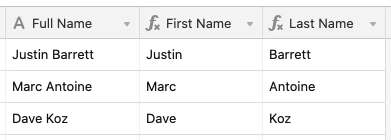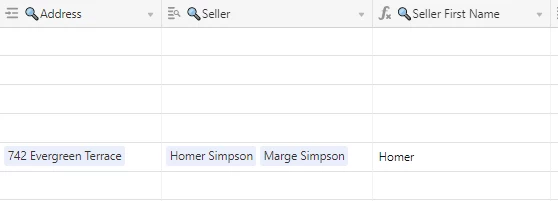Hi all,
I want to use Zapier to export my table to Campaign Monitor but I only need the first name from my primary field which includes the person’s full name (first_name last_name).
Any ideas how I can accomplish this in the table or via Zapier?
I don’t mind creating a first name field and hiding it.








